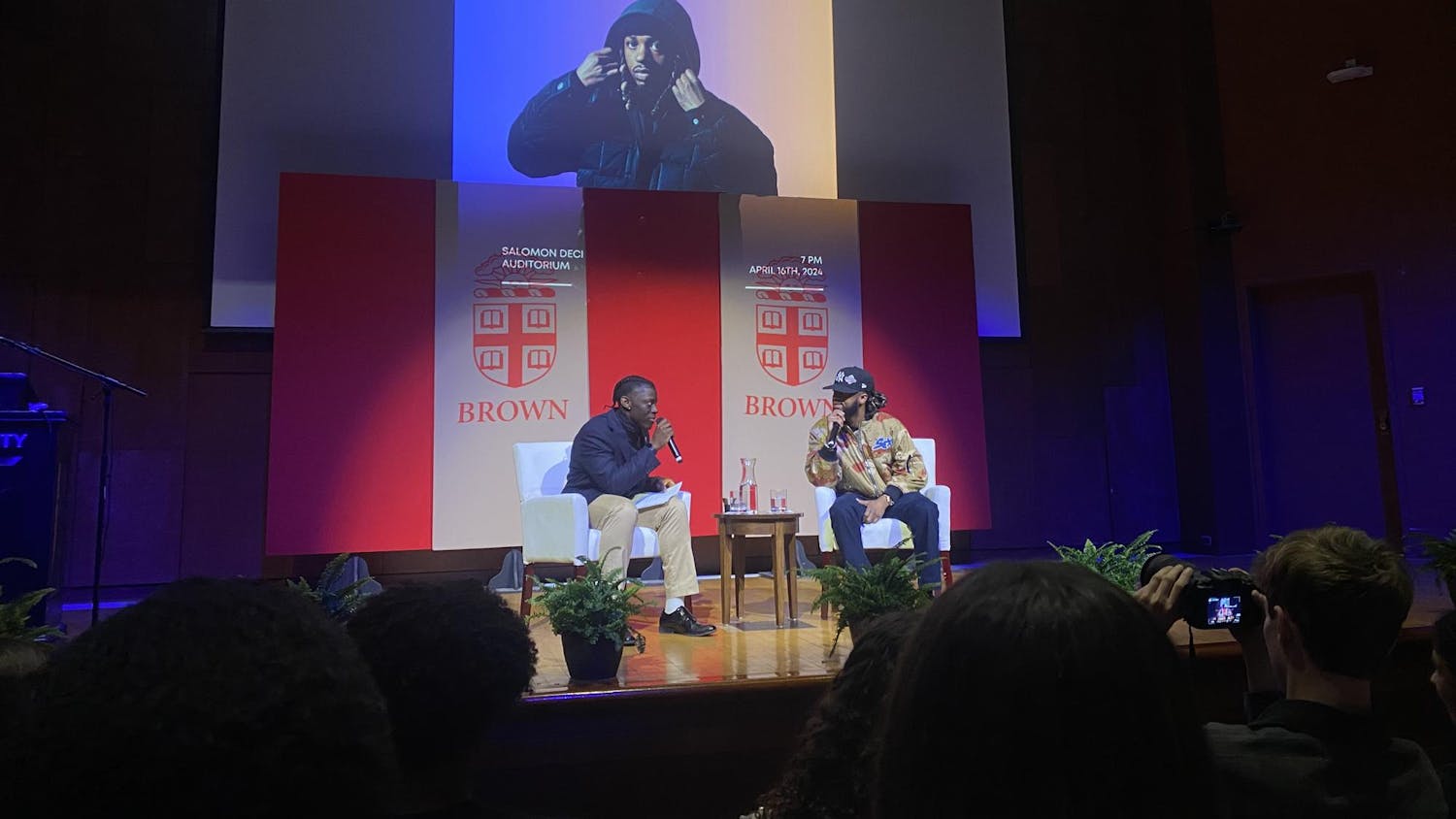Prominent Syrian journalist Samar Yazbek fled from Syria at the height of the violence following the recent civilian uprisings and has since risked her life to return to the unstable country and document its ongoing unrest. Yazbek, an activist and screenwriter, spoke to a packed audience at the Watson Institute for International Studies about her book "A Woman in the Crossfire: Diaries of the Syrian Revolution."
"She's been jumping from one city to the next," said Beshara Doumani, director of Middle East Studies at Brown and professor of modern Middle Eastern history, when introducing Yazbek. "But it's nothing compared to the experience she had during the first 100 days of the uprising in Syria."
Yazbek discussed the impetus for the revolution in Syria and addressed salient issues surrounding the conflict, such as what she said were exaggerations of the influence of al-Qaeda and jihadists on the rebel forces.
She spoke primarily in Arabic, which was then translated into English by an interpreter. Many audience members still spoke to Yazbek in Arabic.
"When he came to power, we all thought, 'He's a young guy, he has a fresh face,' and there was hope," she said of current President Bashar al-Assad, who assumed power in 2000 after his father, Hafez al-Assad, died.
But it soon became clear that Assad would run a dictatorial regime, she said. His series of economic reforms benefited his family and supporters but devastated the rest of the population, destroying the middle class and leading to poverty and starvation for peasants, she said.
After the revolutions in Tunisia and Egypt, young Syrian activists who disagreed with the regime wondered if they, too, could stage a revolution, she said. But few people initially showed up for the demonstrations, even when they used social media to organize them.
The government's brutal response to a series of peaceful civil protests in 2011 fueled unrest.
The protesters were not asking for the end of the regime at this point, she said. Instead, they demanded the cancellation of executive and arbitrary law, the release of political prisoners and the repeal of the eighth amendment to the Syrian constitution that gives rule to the Ba'ath party.
Yazbek described one "Friday of Dignity" protest, where young activists, toting signs saying "No Sunnis, no Alawis, we're all Syrians," were brutalized by three layers of the army, government-hired thugs and secret service members dressed in civilian clothing. The visceral image of young men falling to the ground at once, with flowers and olive branches in their hand, stuck with her, she said.
Yazbek relayed other horrific anecdotes of government brutality against civilians. She said Assad, helped by Western media reports, has exaggerated the influence of Islamic fundamentalists on rebel forces and has tried to cast them as terrorists to gain sympathy.
Assad is preying on traditional religious tensions between Sunnis and Alawis in the area to divert attention from his regime, Yazbek said.
Yazbek said that if Assad were overthrown, a democratic election would likely decide who would take over, though she added the Ba'ath party will continue to play a role in a future Syria.
To attempt to end the conflict, she said she advocates a no-fly zone or materiel support for the rebel forces, but is against international intervention. She worries that the United Nations is not interested or concerned about the conflict, she said. Though rebel forces are growing and starting to coordinate, the real revolution can't stop until the bloodshed ends, Yazbek said.




